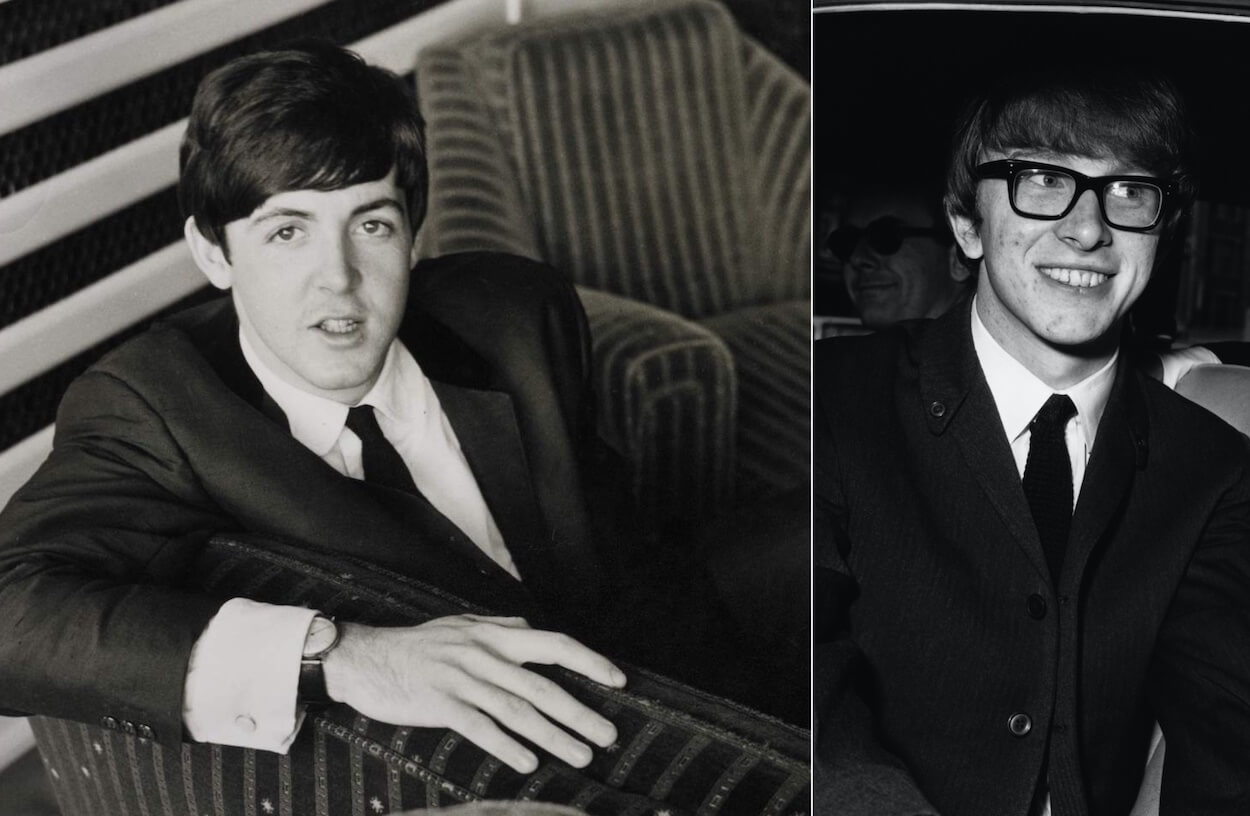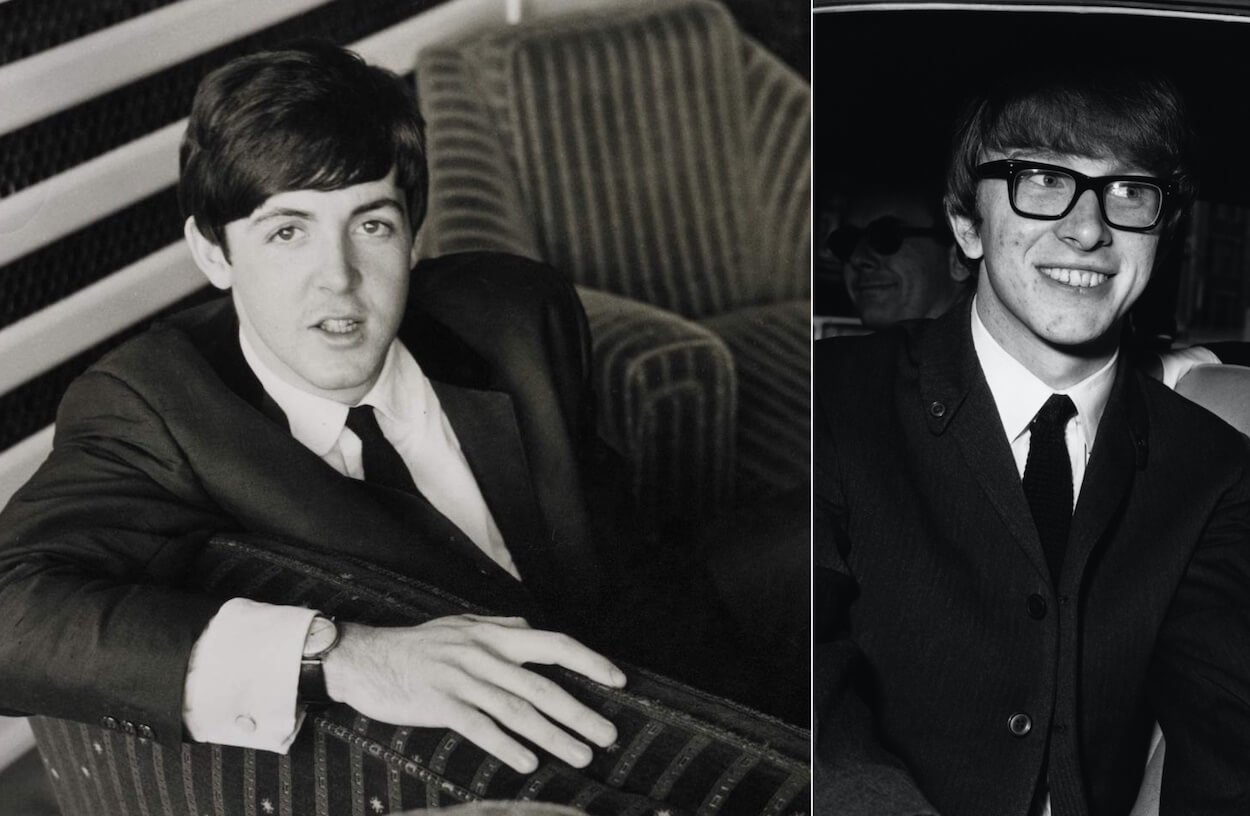
Paul McCartney Happily Did Odd Jobs for His Friend Peter Asher’s Business
Paul McCartney made his living as an artist, but he brought a blue-collar approach to The Beatles. That mentality extended beyond the Fab Four, too. Paul once rolled up his sleeves and cheerfully did a bunch of blue-collar jobs for his friend, Peter Asher. Paul said some Beatles songs came from moments of inspiration while others, such as “I Don’t Want to Spoil the Party,” came from grinding out tunes as part of the job. His work helping Asher proved he had no problem grinding away doing physical labor.

Paul McCartney did a series of blue-collar jobs to help Peter Asher launch his business
Paul once said The Beatles were for the working people. The bassist said the stuffy establishment types would never come around to their music. Instead, they penned tunes for the laborers who worked for the buttoned-up people. He proved how closely he identified with that crowd.
Paul cheerfully did a series of handyman jobs to help Asher launch his Indica Gallery and Bookshop business in 1965, according to Paul McCartney: A Life author Peter Ames Carlin:
“When Barry Miles teamed up with Peter Asher and gallery owner John Dunbar to open the Indica Gallery and Bookshop, a one-stop center for avant-garde writings and art they planned for the lower floors of an unimproved building in Mason’s Yard in the swank Mayfair section of London, Paul pitched in with hours of physical labor, pounding together the shelves, spackling the holes in the walls, even hand-designing and printing up reams of wrapping paper.”
Paul’s pounding attracted crowds of curious onlookers, writes Ames Carlin. They would stop and stare at The Beatles’ bassist, who made his living delicately playing bass, guitar, and piano, swinging hammers and patching holes in the wall. Miles and Asher eventually put paper over the window to deter the onlookers.
Macca probably felt obliged to help for two reasons.
First, he was enthusiastically involved in London’s underground avant-garde art movement. Second, and just as importantly, he lived with the Asher family. His room in the attic was next to Peter Asher’s music parlor. The pair enjoyed many nights discussing music and art, Ames Carlin writes.
Paul said staying with the artistic Asher family was like living in a novel. Pretending to be a laborer and doing blue-collar jobs to make Peter Asher’s boutique shop come to life was probably a plot twist no one saw coming. Same with John Lennon meeting Yoko Ono at one of the gallery’s exhibits.
Paul working in the shop was also a distraction
We have to applaud the artistic Paul rolling up his sleeves and doing manual labor to help his friend.
He was also an incredible distraction.
Not only was Asher a proprietor of a soon-to-be London art scene hotspot, but he was also one half of the pop music duo Peter and Gordon. Journalists who came to interview Asher about his music tended to get sidetracked when they spotted Paul working, Ames Carlin writes:
“Paul would be even more flirtatious with the young female fan-magazine reporters who showed up at the Indica to interview Peter in his role as one-half of Peter and Gordon. The writers, often inexperienced and tongue-tied in the presence of a moderately successful pop star, would nearly burst into tears when they realized that the young man winking from the sink with the spackling tool in his hand was — Oh my God! — Paul McCartney. Peter, already accustomed to being upstaged by his not-quite brother-in-law, just smiled until Paul left the room and the woman had regained the power of speech.”
The fruits of Paul McCartney’s odd jobs at the Indica shop off the ground didn’t last long. Miles, Asher, and Dunbar’s shop opened in November 1965 and closed two years later. Still, there’s something to be said about a world-famous artist getting dirty for a cause he believed in.
For more on the entertainment world and exclusive interviews, subscribe to Showbiz Cheat Sheet’s YouTube channel.


